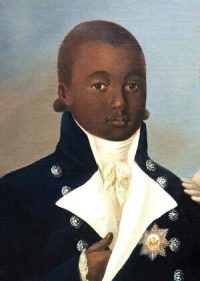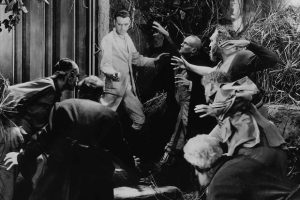The tale of Prince Jacques-Victor Henry, son of King Henri Christophe and Queen Marie-Louise Coidavid, is a poignant chapter in the saga of Haiti’s early years as a nation. Born into the first Black republic’s nascent aristocracy, his life was a symbol of Haiti’s struggle for dignity, sovereignty, and identity amidst the challenges of post-revolutionary governance and international isolation.
As the son of one of Haiti’s most ambitious rulers, Jacques-Victor’s existence was intertwined with the grand projects and aspirations of his father. Henri Christophe’s reign was marked by efforts to elevate Haiti on the world stage through initiatives like the construction of the Citadelle Laferrière, a fortress symbolizing defiance against colonialism, and the establishment of a cultural and educational system aimed at nurturing a sense of national pride and progress.
Queen Marie-Louise played a crucial role as consort, navigating the complexities of court life and the burdens of motherhood under the weight of the nation’s expectations. In this context, Jacques-Victor was not merely a prince but a beacon of the future, embodying the hopes for a dynasty that could lead Haiti towards prosperity and stability.
Tragically, Jacques-Victor’s life was cut short at the tender age of 16, a stark reflection of the turmoil that enveloped the Christophe dynasty. Following his father’s suicide amid a rebellion in 1820, Jacques-Victor was killed, his death symbolizing the end of his family’s ambitions and the fragility of their quest to cement a legacy within the young republic.
The story of Jacques-Victor Henry, entwined with those of his formidable parents, highlights the personal tragedies behind the political narratives. It underscores the challenges faced by Haiti in its early years, from establishing a sense of identity and sovereignty to navigating the treacherous waters of leadership and legacy. Jacques-Victor’s brief life and untimely death remind us of the human cost of political ambition and the enduring impact of these historical figures on Haiti’s path as a nation.
Reflecting upon his life enriches our understanding of Haitian history, offering lessons on resilience, leadership, and the complexities of inheriting a vision for a nation’s future. It invites contemplation on the personal dimensions of those tasked with leading a country through its formative years and the sacrifices entwined with the pursuit of grand national narratives. Jacques-Victor Henry, though a footnote in the broader scope of Haitian history, represents the poignant interplay of ambition, tragedy, and the quest for legacy that defines so much of human endeavor.












Add a comment